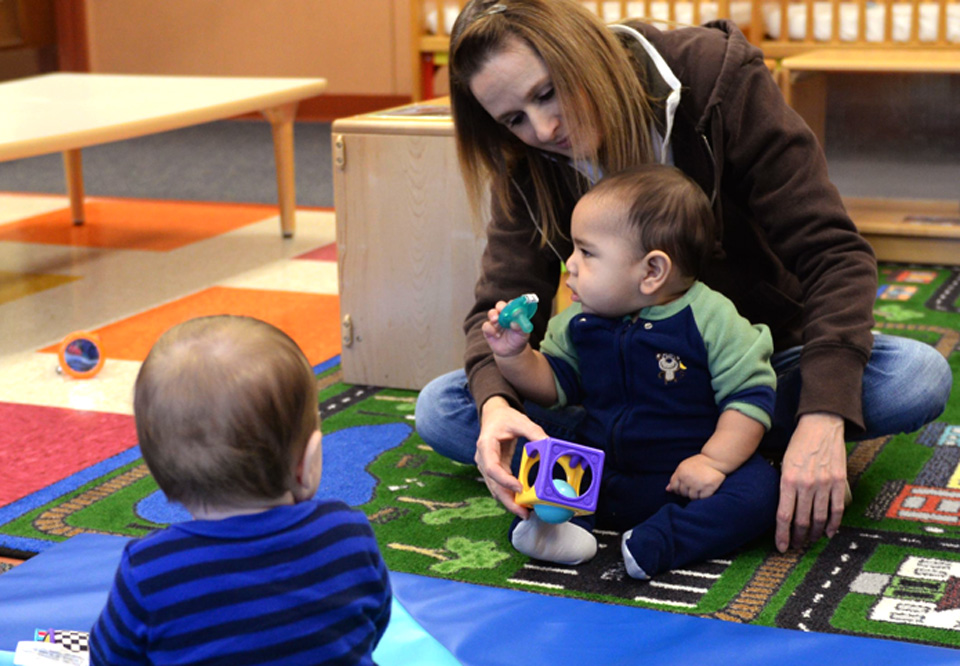Play is vital for developing your baby’s brain. Babies learn about themselves, the world around them, and their relationships through play.
When we think of play, we often think of imaginary games. Yet for babies, play consists of everyday moments spent experiencing their world through their senses.
This is why babies put objects in their mouths for the first 18 months. In this way they are able to sense the taste, texture and weight of the object.
Learning through the senses
Most babies are born with the senses of touch, smell, taste, vision, hearing, movement and balance. Using information gained from the different senses is how your baby’s brain begins to understand the outside world. The way we take in and make use of the information from our senses is called sensory processing.
Sensory information is processed by babies’ brains and affects everything they do. This includes how they explore, move, learn, interact with others and control their emotions.
From birth, parents help their baby experience the world through their senses. By being cuddled, talked to, fed and having their nappy changed, a baby receives signals through their senses. These signals help them learn about balance, momentum, space and movement, and their muscles. Your baby needs these experiences before they can physically move, roll, crawl and walk on their own.
Spatial awareness
By involving your baby in everyday activities you are letting them explore their world. For example, by rocking or swinging them, you are helping their spatial awareness. This is their awareness of objects in the space around them and also their body’s position in space.
Children who have well developed spatial awareness are able to feed themselves as they can judge the distance from the plate to their mouths.
It also helps them become better at abstract thinking, maths and reading. Spatial awareness will enable them to see patterns and spaces between the different letters. As they grow, they may also be skilled at team sports as they are aware of the precise positions of other players on the field.
What can parents do?
- By simply holding your baby you are helping to wire your baby’s brain circuits. That will help your child achieve at school in the fields of maths, science and language.
- Your baby’s favourite toy is your face and body.
- Hold your baby close to your face and talk to them, while watching to see that your baby is not getting too tired or overstimulated. Stop if your baby indicates that they are tired and overstimulated. They will do this by looking away, arching their backs, or crying.
- Allow your baby time to lie on their back while being able to freely move their arms and legs.
- Provide your baby with frequent supervised tummy time.
- Model play behaviours to your child by picking up and shaking a rattle.
- Allow your baby to safely explore their world. This way you will encourage them to develop their thinking, emotional and physical skills through exercising their muscles.
Want to know more?
Read about play for newborns and babies
Raising Children Network – Thinking and imagining: newborns
Raising Children Network – Newborns Development
If you still have questions, contact our Parenting Line
